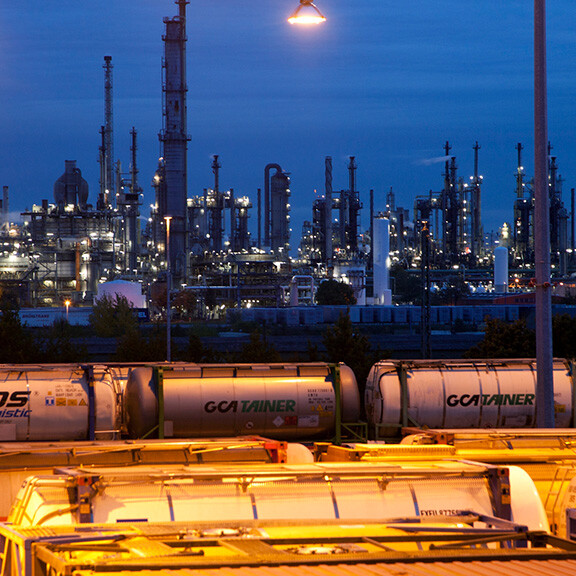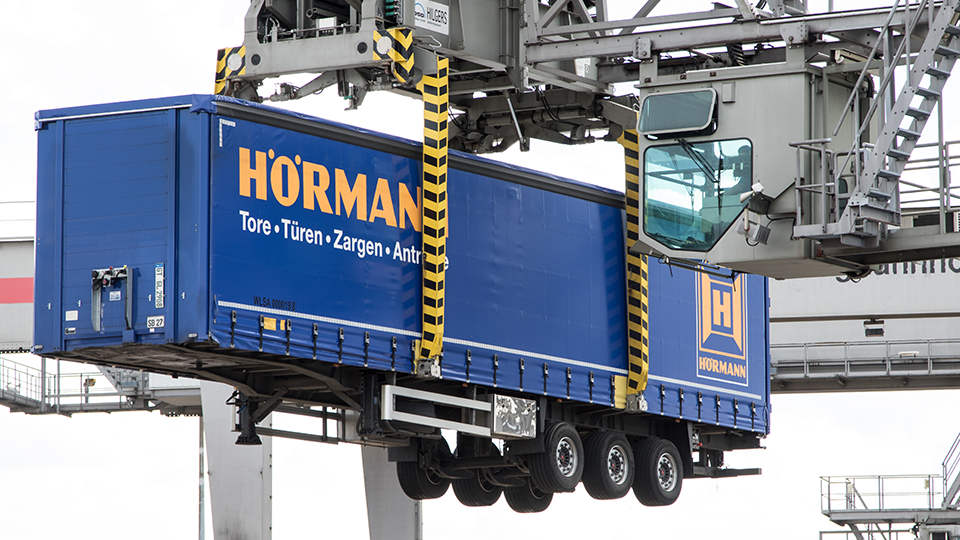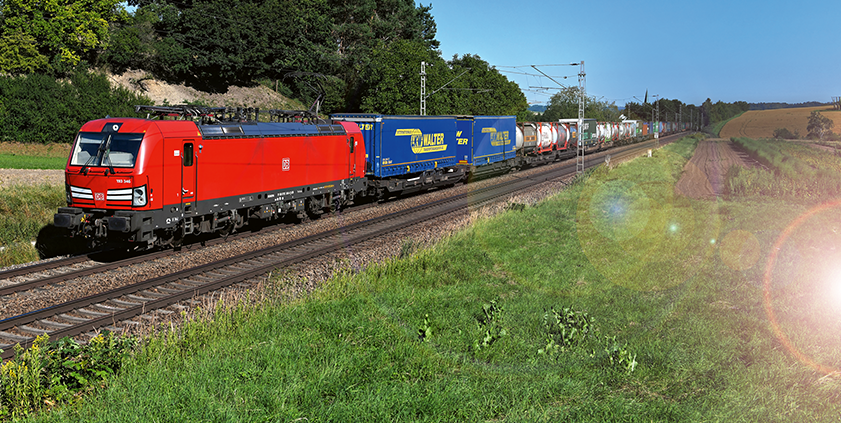

Volatile markets and climate protection targets: The industry is faced with the challenge of finding innovative and sustainable solutions for its logistics requirements. Intermodal transport has been gaining in importance for years. More and more best-practice cases show that linking modes of transport can be a decisive factor for greater efficiency and competitiveness in industry and trade. Intermodal transport creates new perspectives and offers a multitude of advantages.
Up to four tons more load weight

Toll only for pre- and post-carriage

Saving of expensive storage capacities
Compared to through road freight transport, your contracted freight forwarders or your own plant traffic may use 44 tons total weight in the pre- and on-carriage to the terminals. This corresponds to a weight advantage of 15 percent.
Tolls only have to be paid for the use of federal highways on the pre- and post-carriage, i.e. the short distances compared to the main route. This results in significantly lower toll charges for your company.
In order to save storage capacity or use it for other purposes, goods and merchandise can be temporarily stored in containers and depots in intermodal transport at comparatively low cost.
Saving and avoiding carbon dioxide
Optimization of the carbon footprint

Safe & Secure
Due to the fact that less energy is required per tonne transported by rail, around two-thirds of climate-damaging carbon dioxide is saved.
You can score points with Kombiverkehr: Two-thirds less carbon dioxide by loading road transporters onto environmentally friendly rail means that the carbon footprint of your industrial or commercial company is extremely positive.
Regardless of whether the keyword is "safe" or "secure", you benefit in both cases with Kombiverkehr. This is because the transportation of goods by rail is statistically 40 times safer than by road. And theft and damage are much less common than on the road. Just a few more reasons to have sensitive hazardous goods or, for example, high-quality metals or automotive parts transported by rail.


